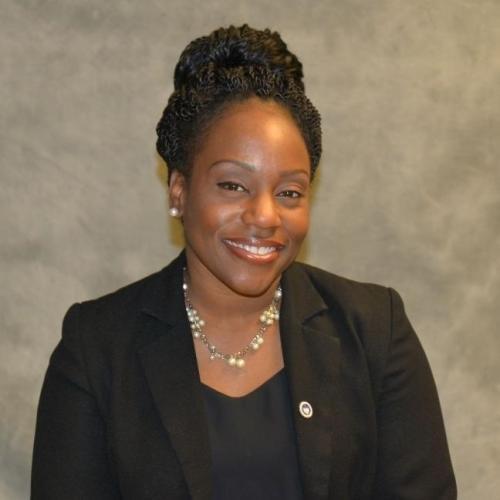When she was just 13 years old, Finie Hunter-Richardson’s mother died from a disease she could have survived if had been detected earlier: colorectal cancer. More than 30 years later, Finie Hunter-Richardson, PhD, MPH, now an assistant professor in Howard’s Department of Community and Family Medicine, is doing research to help others avoid that same fate.
“Even at 13, I realized that if she had been screened earlier, my mom would have had more treatment options. So, the work that I do is a memorial to her,” Hunter-Richardson said. “To be able to speak to individuals and encourage them to get their screening as recommended — it’s just something near and dear to me.”

When it comes to colorectal cancer, it’s also something that’s becoming increasingly deadly. According to the American Cancer Society, which funds Hunter-Richardson’s current research, colorectal cancer is the second leading cause of cancer deaths in the United States. African Americans are about 20% more likely to get the cancer and about 40% more like to die from it than any other group. What’s more, those born in the 1990s have two times the risk for colon cancer and four times the risk for rectal cancer.
“Colorectal cancer is an age-related disease typically diagnosed in older adults. The recent trend in incidence is that it’s being diagnosed in younger adults in much later stages. Based on national data and evidence, guidelines for screening have changed from 50 to 45,” Hunter-Richardson said. “And the trend is especially so for younger Blacks and Hispanics.”
Hunter-Richardson said many factors may contribute to these trends including lifestyle factors such as diet and exercise, genetics, environmental factors, and even the gut microbiome. But among African Americans, her research also points to disparities in screening, mortality and survival resulting from lower economic status as well as poor access to services and lack of adequate health insurance.
It’s about changing the way we think about colorectal cancer as being a disease common for older adults.”
The five-year survival rate of colorectal cancer is 91% if found early before the cancer has spread, but early-stage colorectal cancer doesn’t have symptoms. It is important to contact your doctor regardless of age if you have blood in stool, abdominal pain, or ongoing changes in bowel habits. That’s why Hunter-Richardson’s research focuses on encouraging early screening — and overcoming barriers to doing so. She’s also produced a number of patient-facing colorectal cancer awareness health messaging posters and handouts to encourage screening and prompt conversations about the disease.
“It’s just not on the radar of younger individuals,” Hunter-Richardson said. “So, it’s about changing the way we think about colorectal cancer as being a disease common for older adults. But trust in the health care system and trust in the doctor is really paramount, too.”
Hunter-Richardson’s research used focus groups of men and women to discover the chief sources of mistrust and the barriers to screening.
When it came to barriers, the list included finances, transportation and time. But one of the biggest barriers was fear. “It’s fear of the unknown, fear of the procedure, fear that the screening will be very invasive and even fear of the outcome,” Hunter-Richardson said.
Trust in the health care system and trust in the doctor is what’s going to move the patient forward in screening.”
Overcoming these fears — and getting the necessary routine screening — means regaining trust in the screening process and with doctors themselves. Hunter-Richardson’s research shows that better education about the screening procedure and the different options available are key. She said it’s been particularly effective to have a patient navigator who walks through the process step by step.
“Trust in the health care system and trust in the doctor is what’s going to move the patient forward in screening,” she said.
One way of gaining that trust is incorporating the patient’s faith into the process. The focus group showed that many patients prayed before going to the doctor and believe they’re being guided to the right physician. Hunter-Richardson said doctors could augment that trust-building by praying with patients.
“These are conversations we don’t typically have, but it is an important part of the patient’s trust, and it could be really important for their health care decisions,” she said. “For doctors, it’s about taking the time to get to know your patient. Just having that conversation about what is needed for them to make an informed decision and get the test done could make all the difference.”
Article ID: 2121




